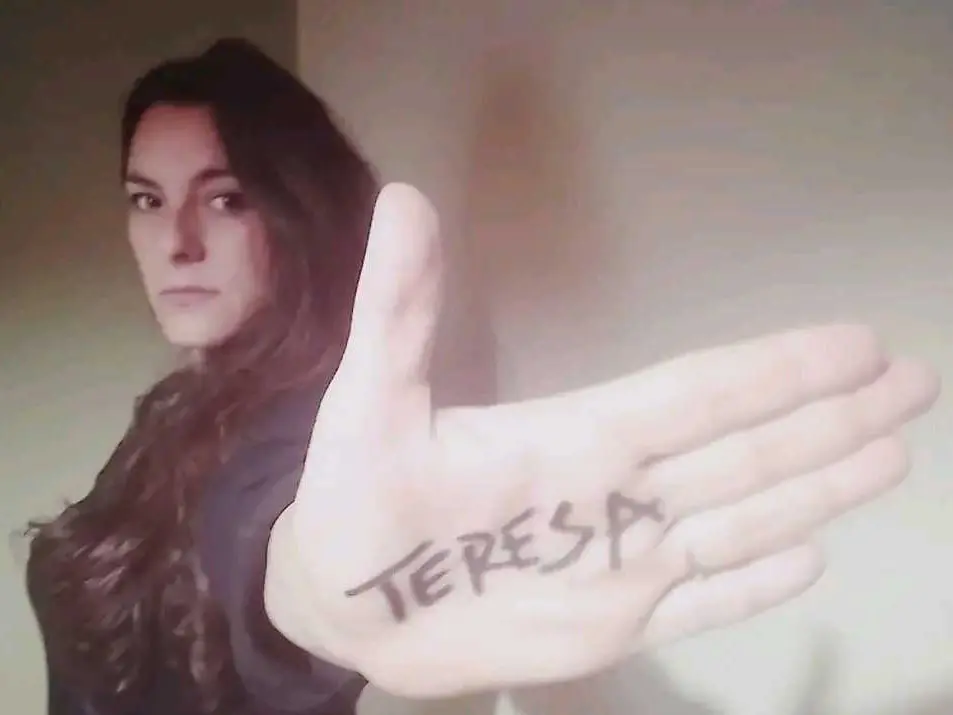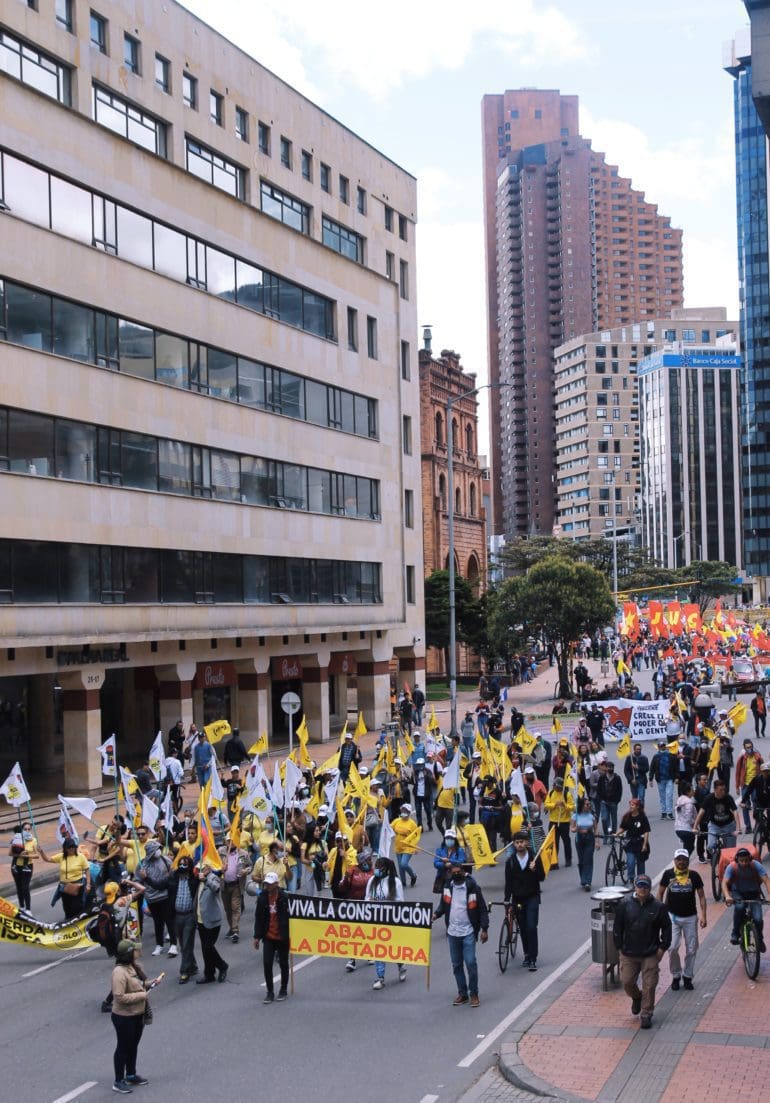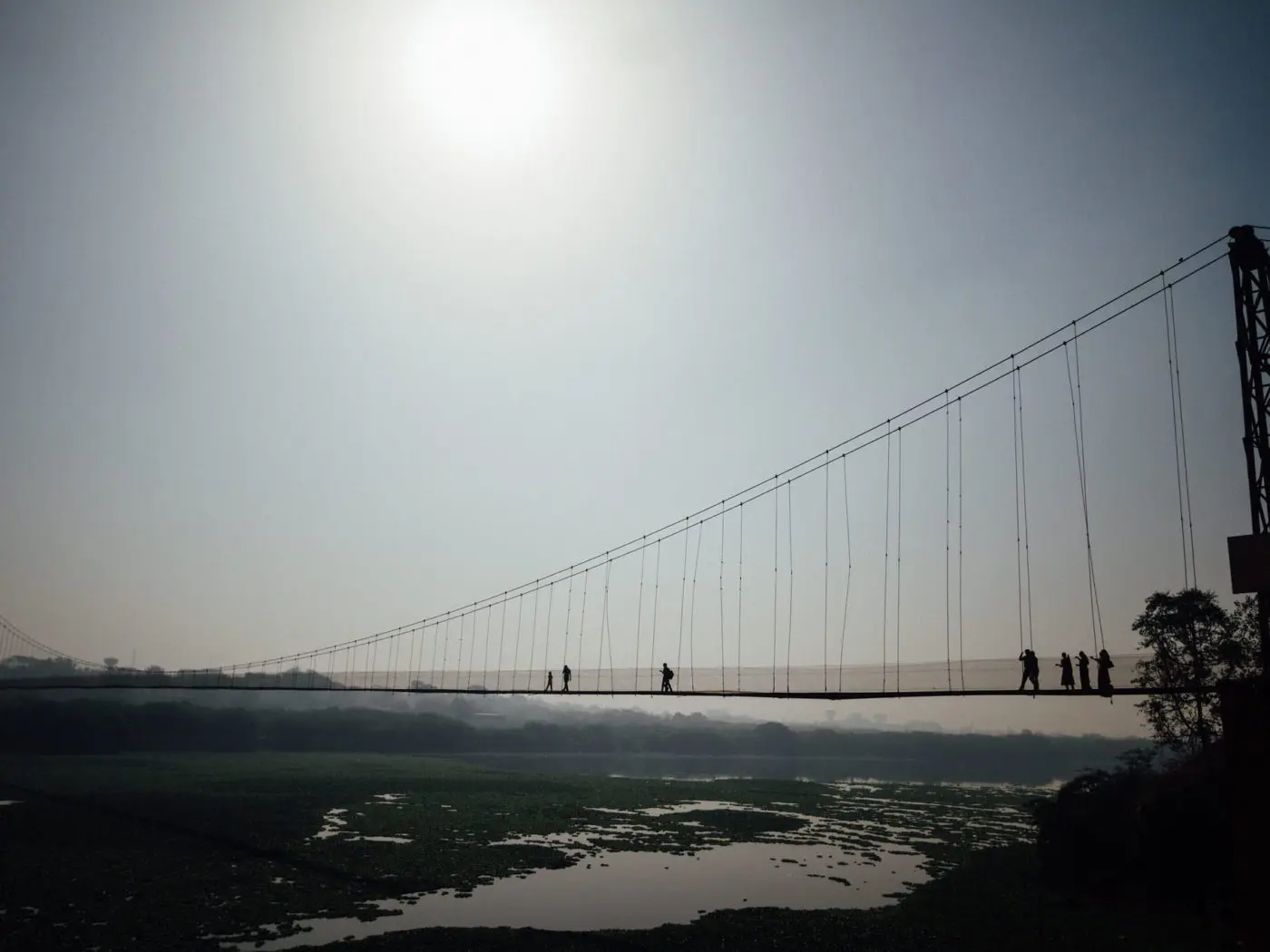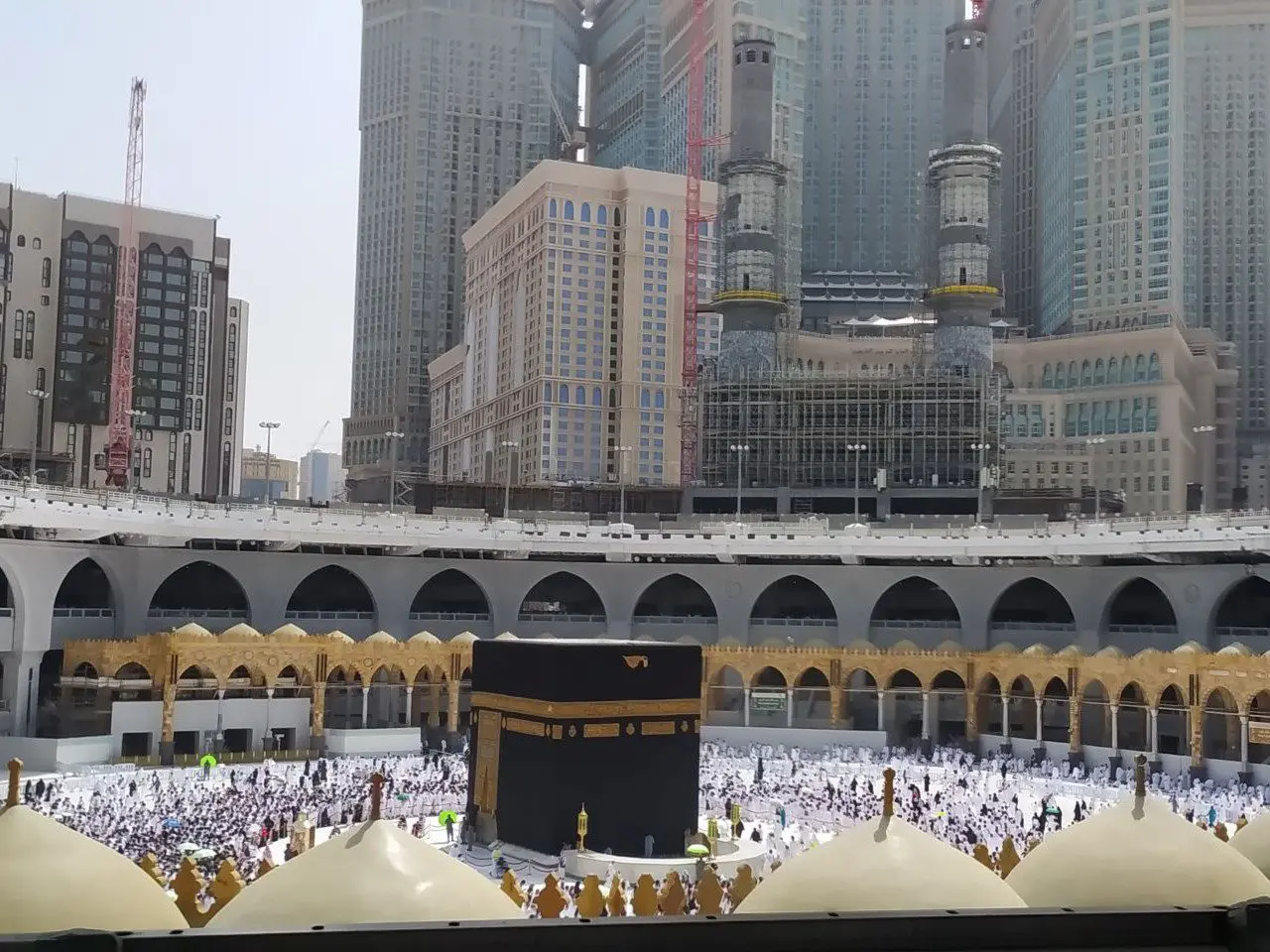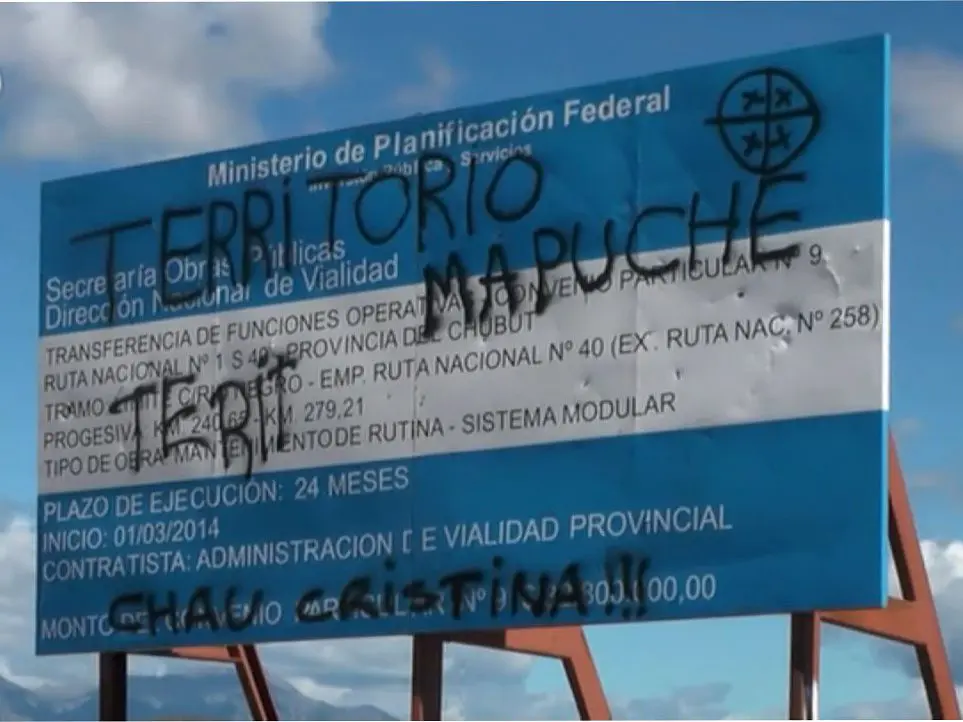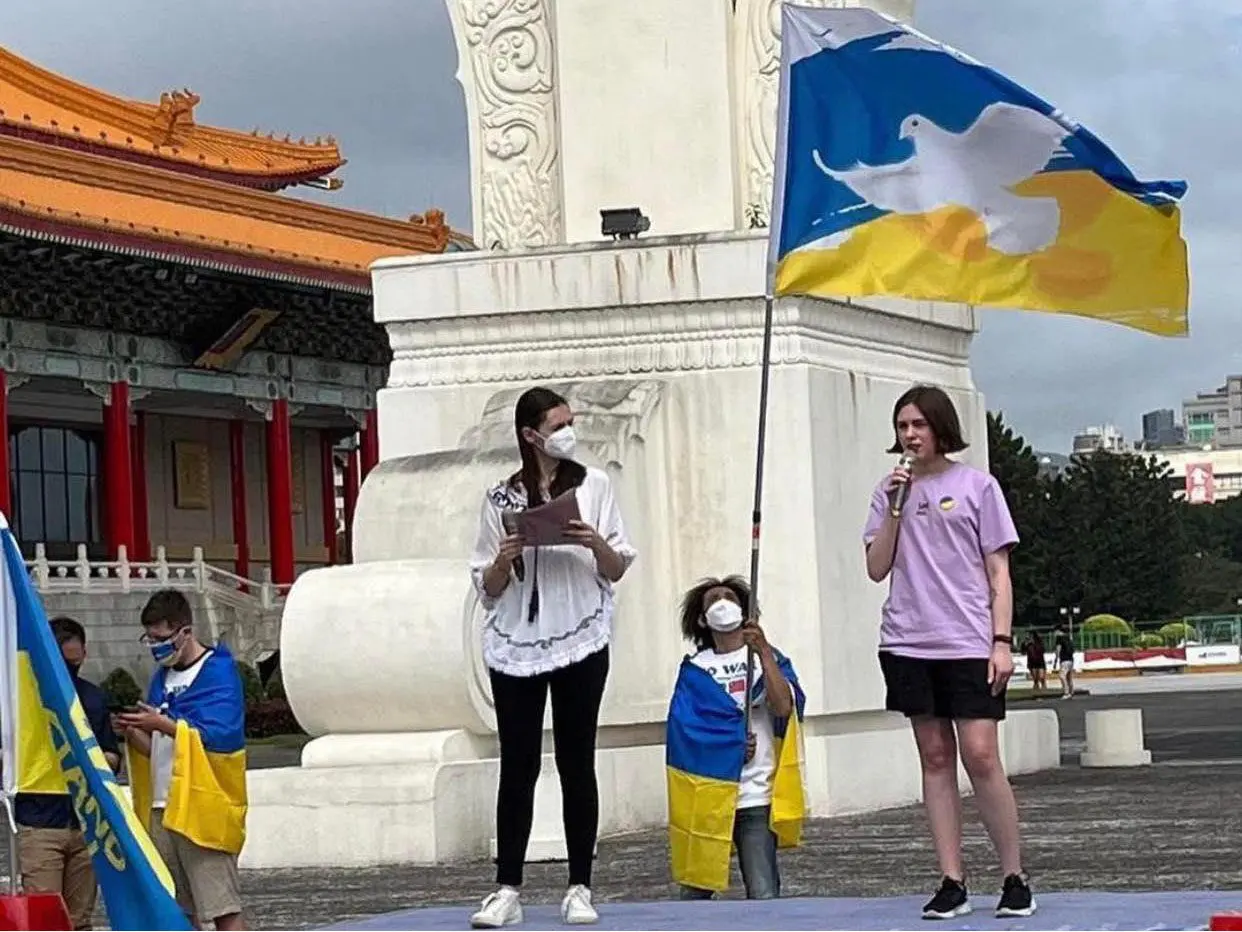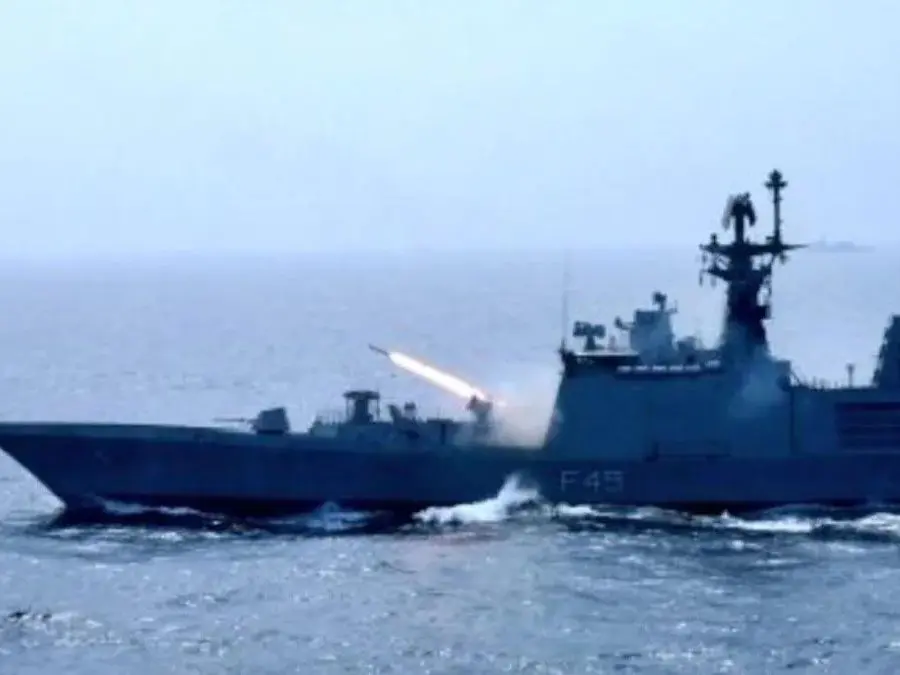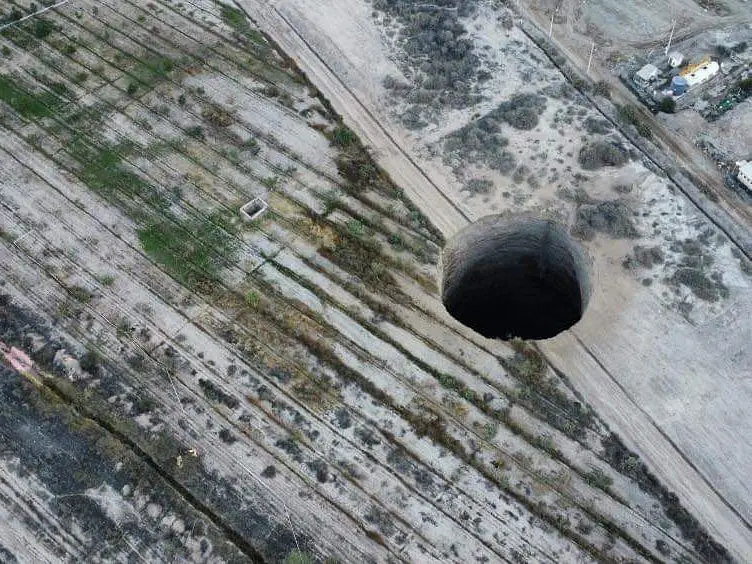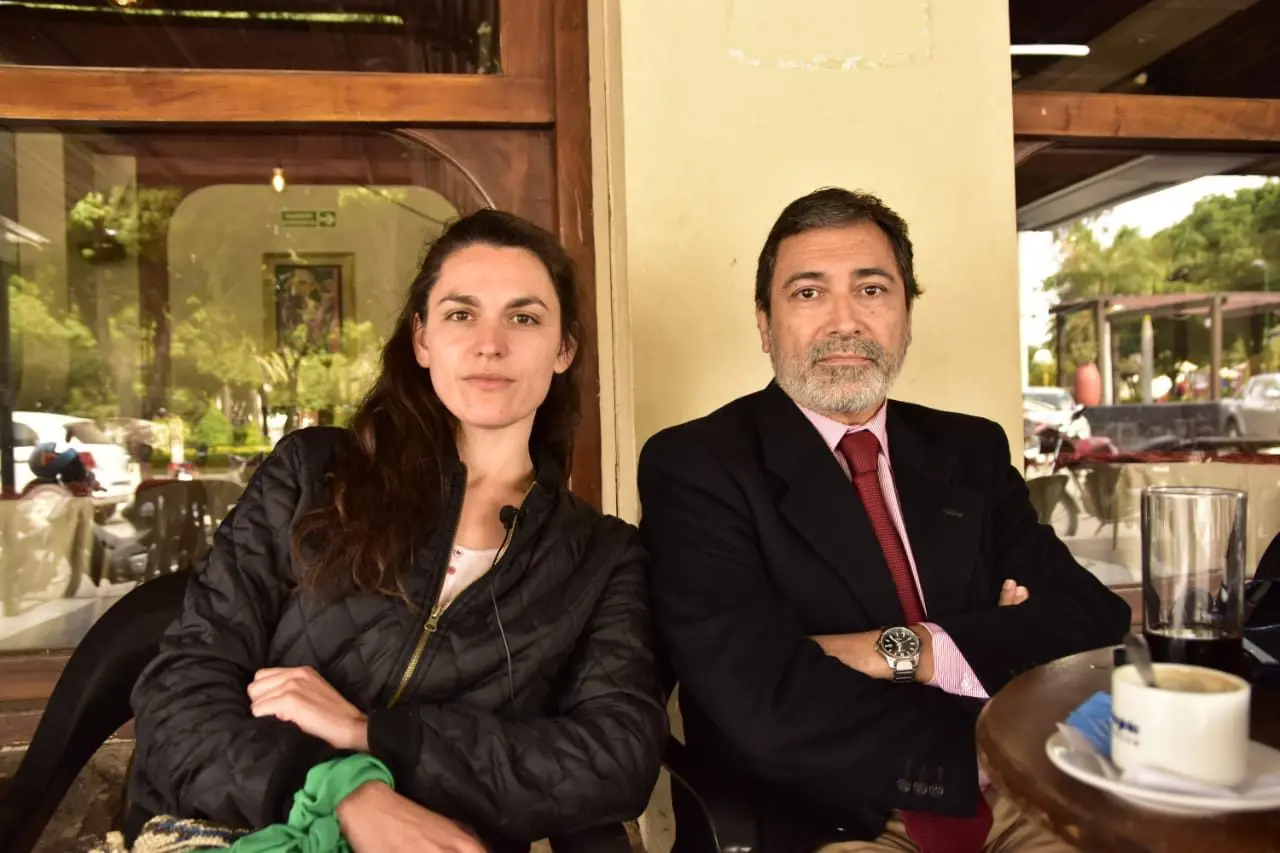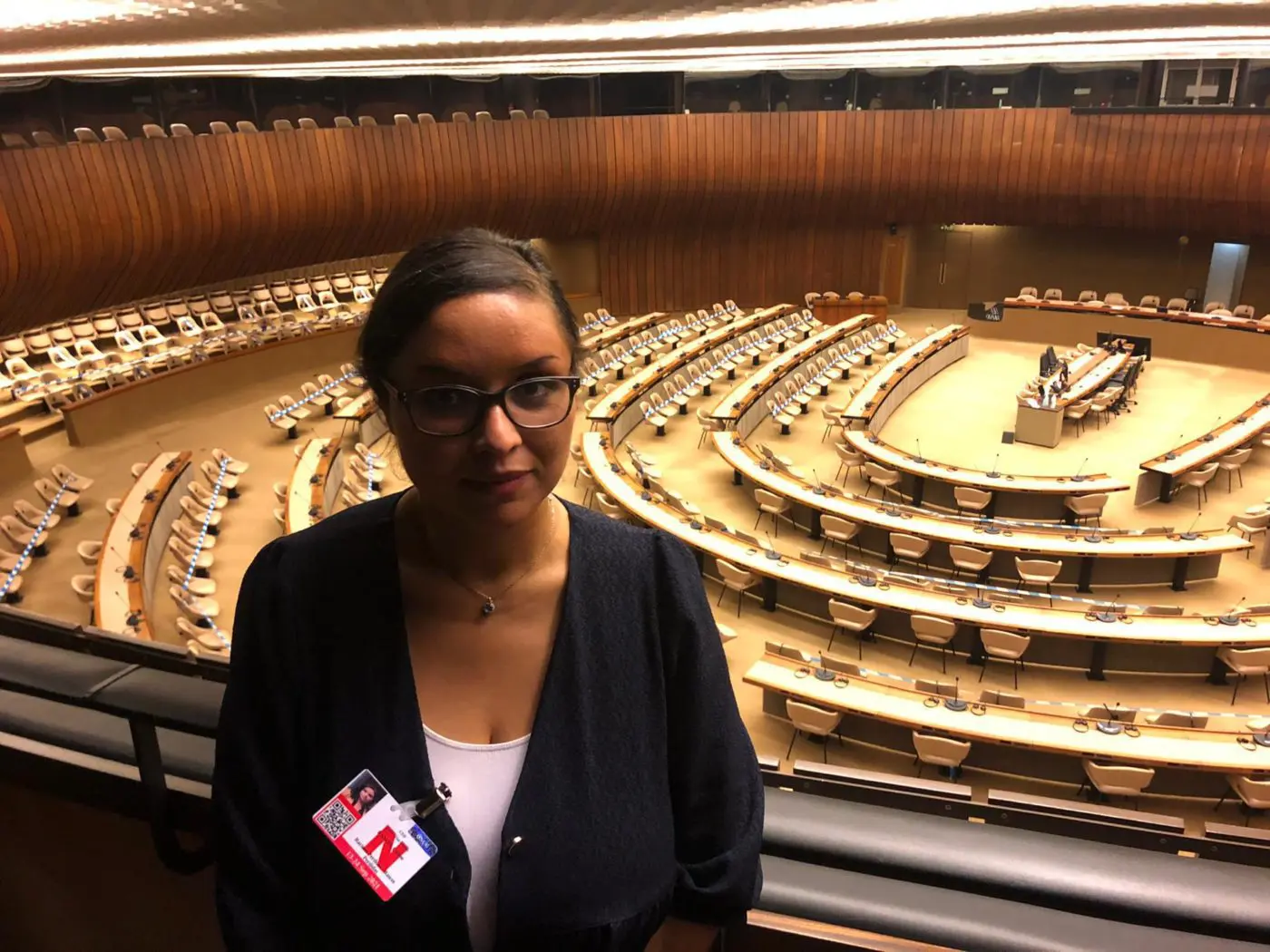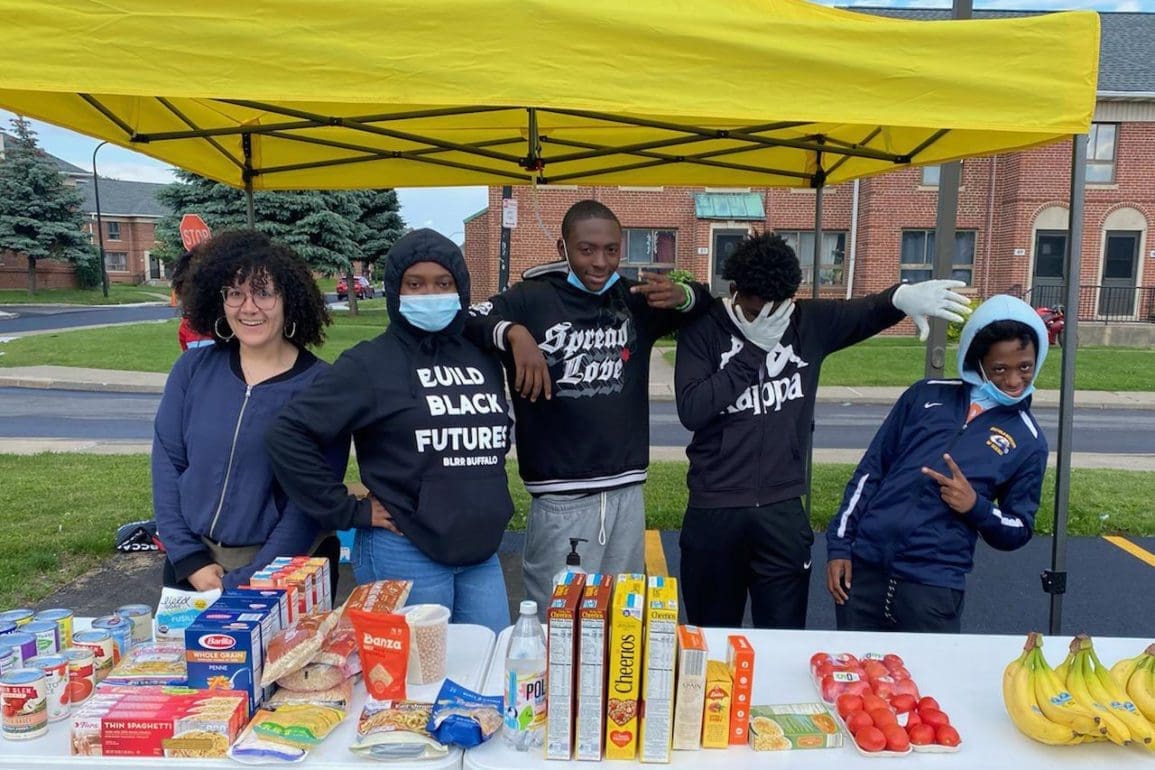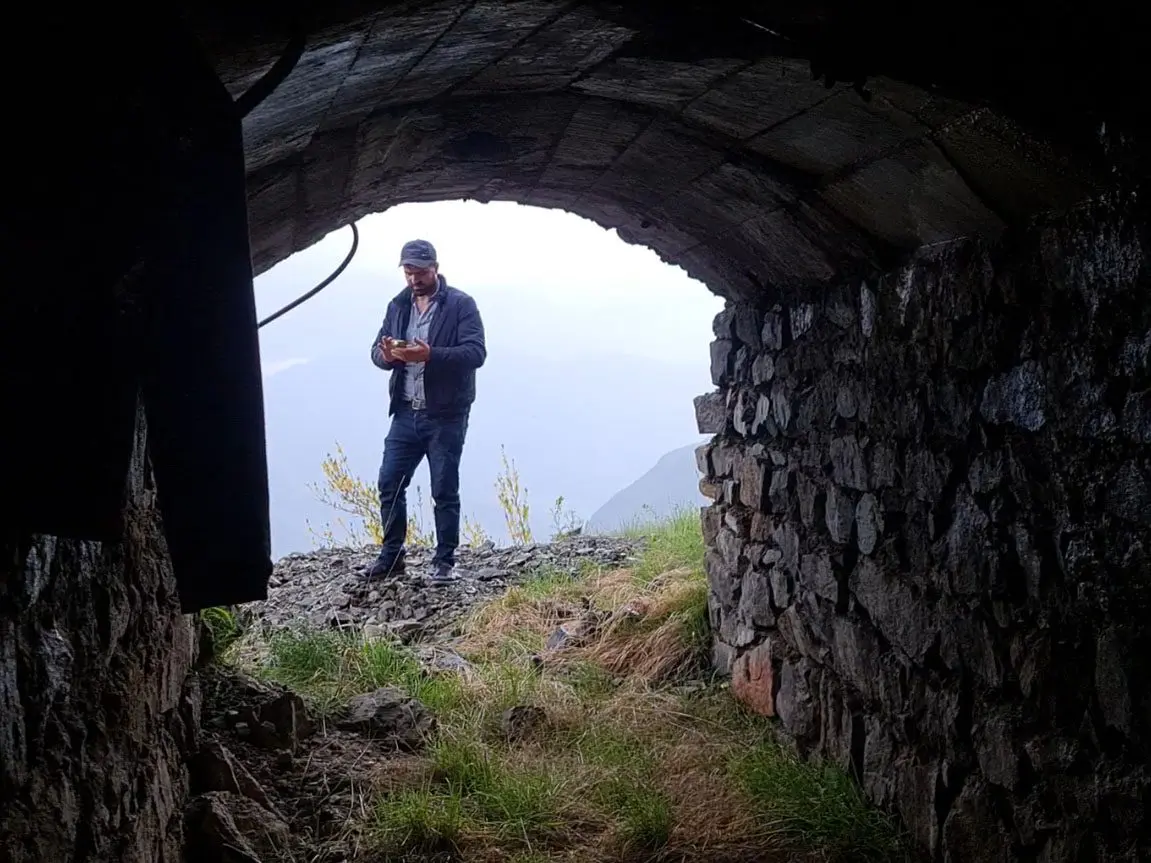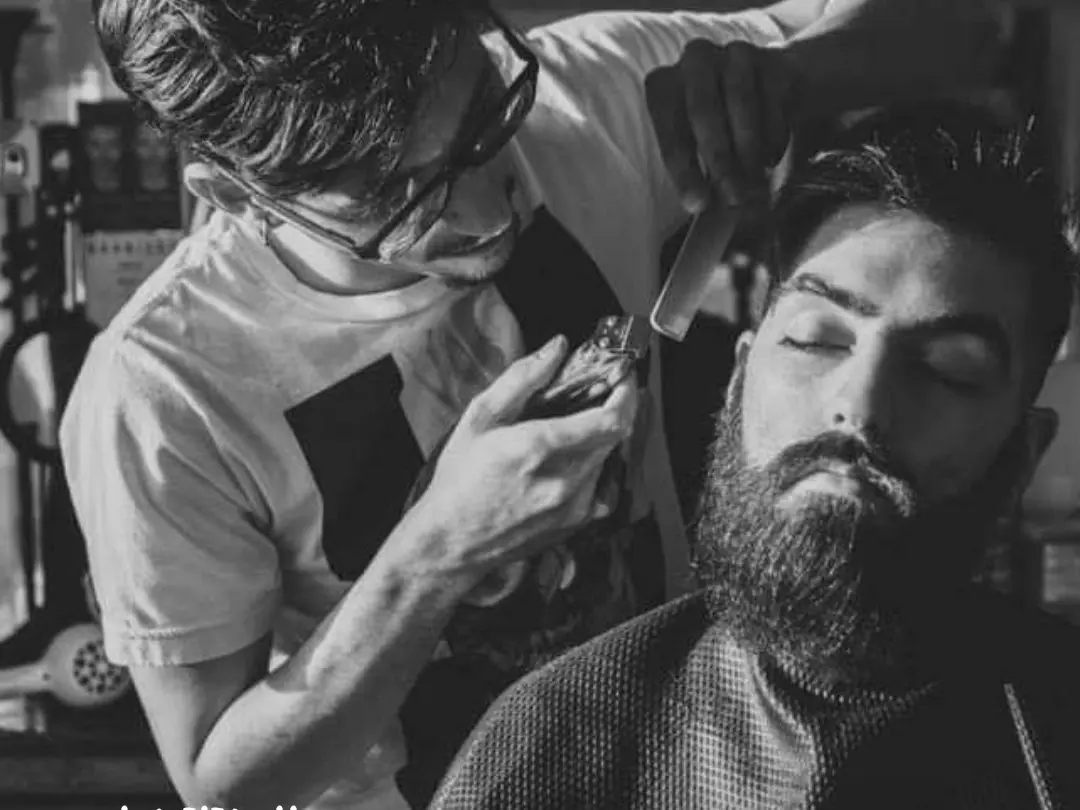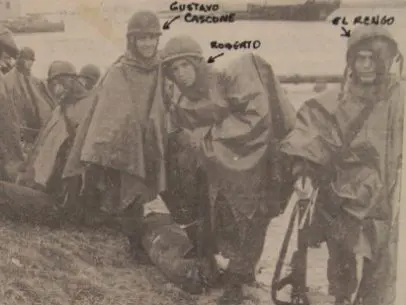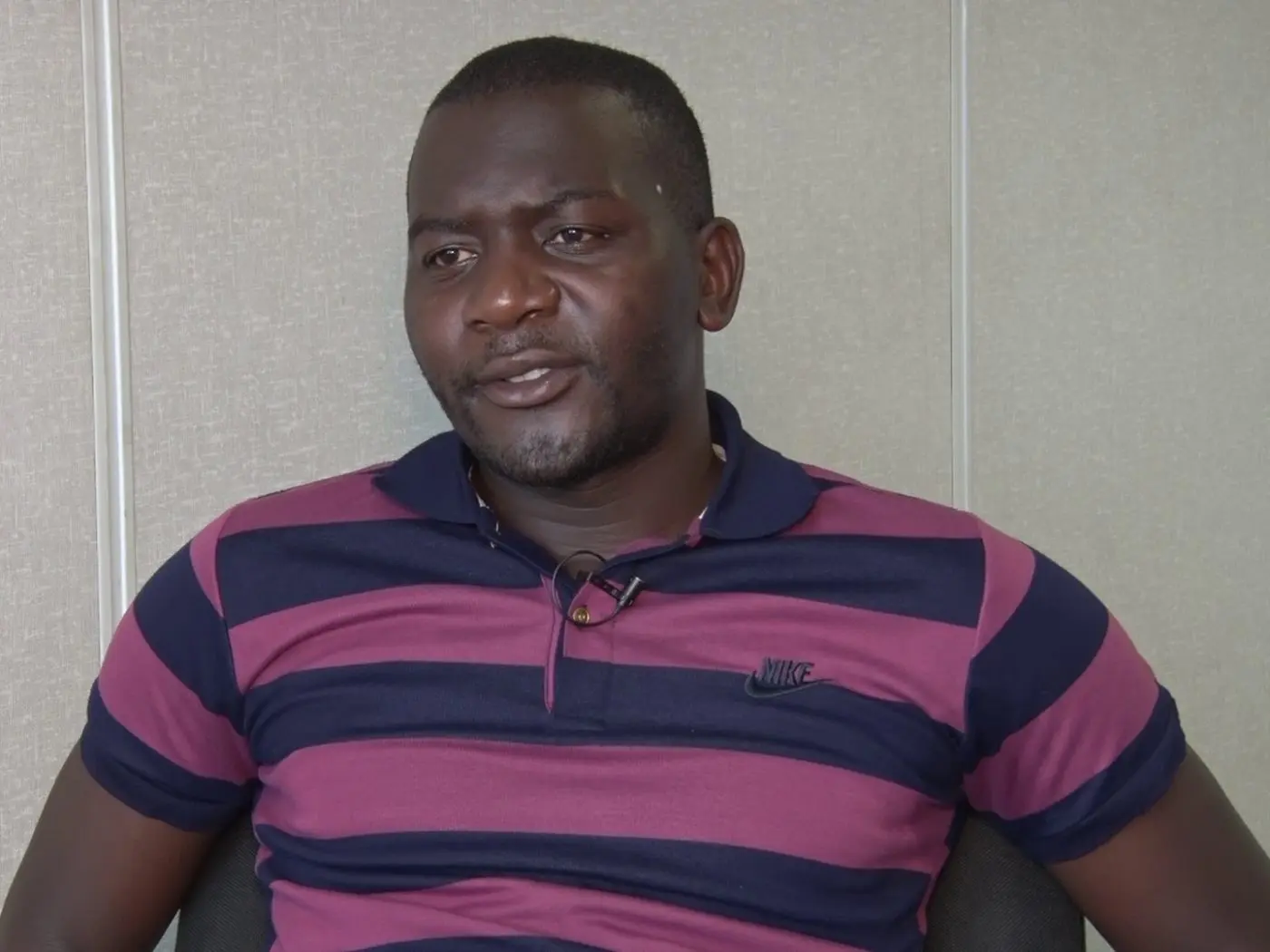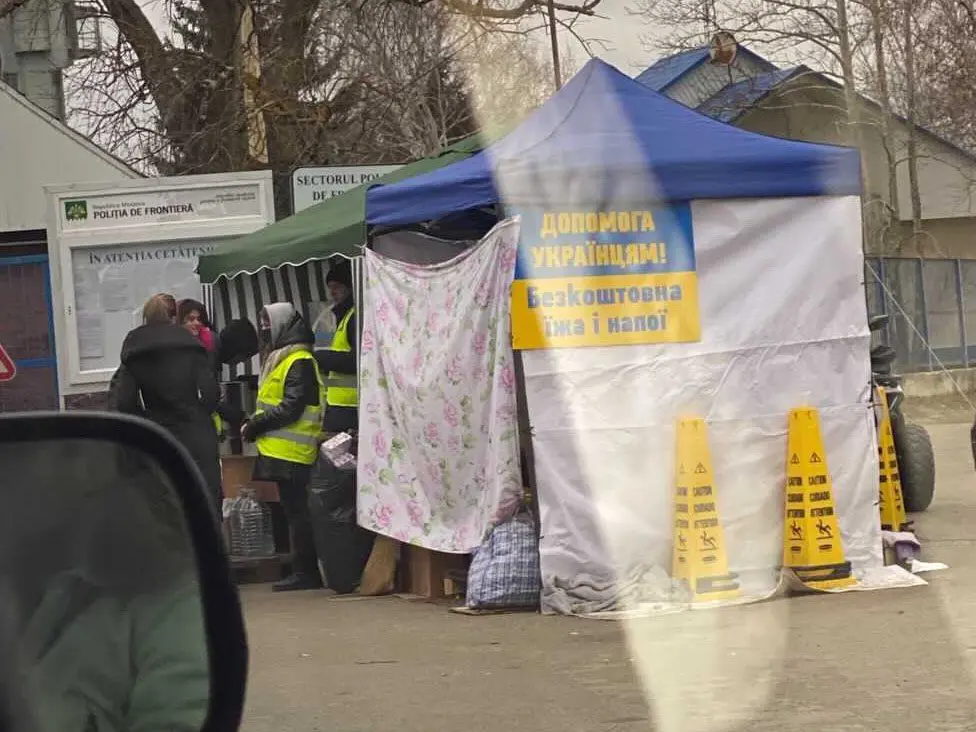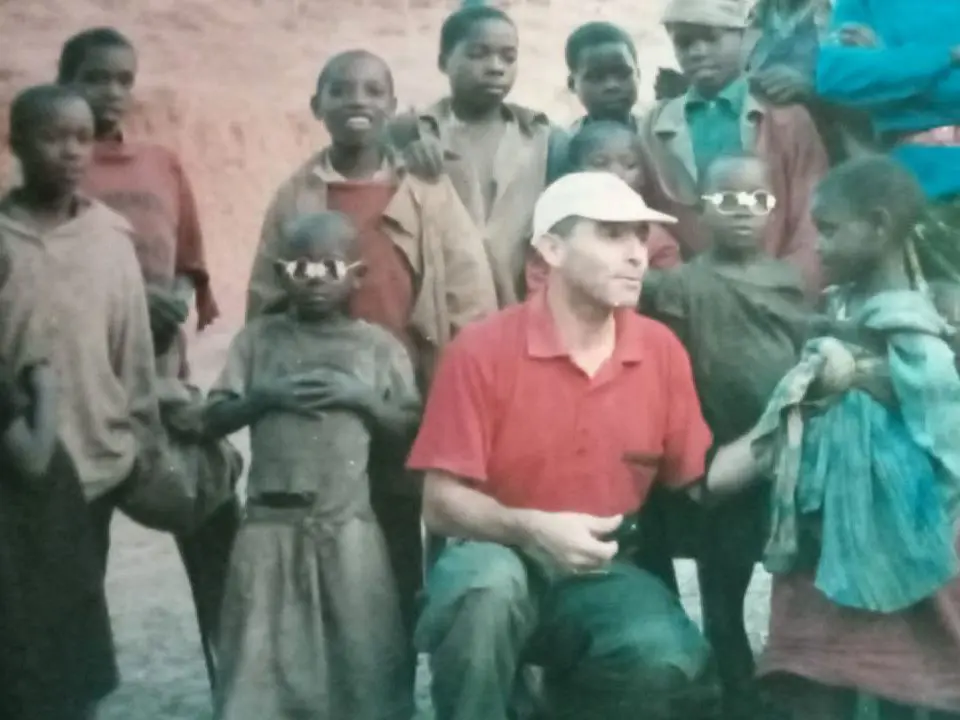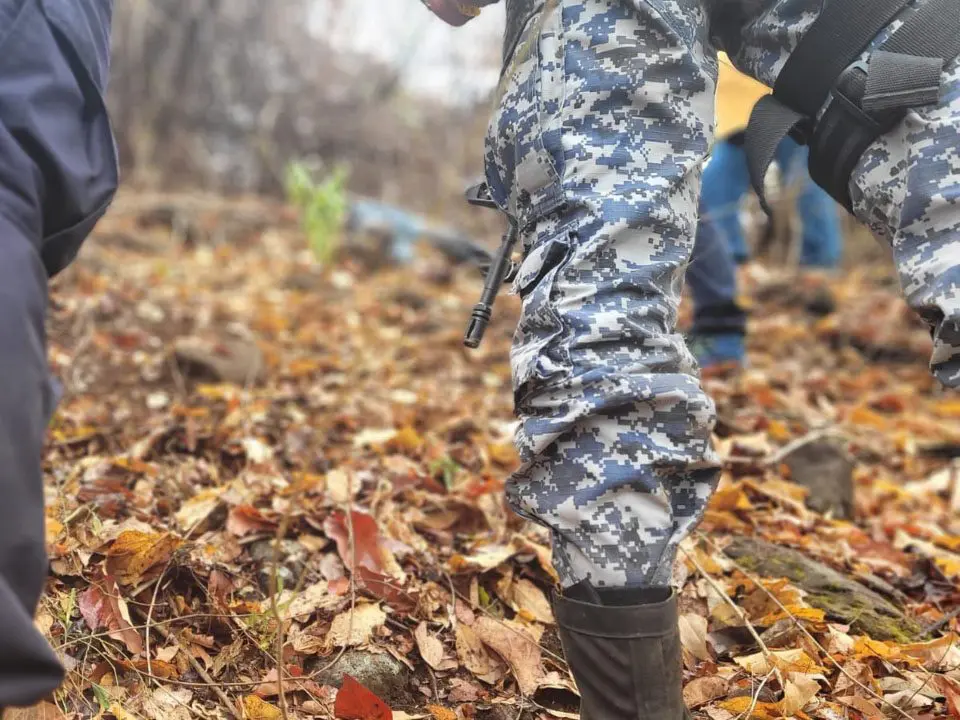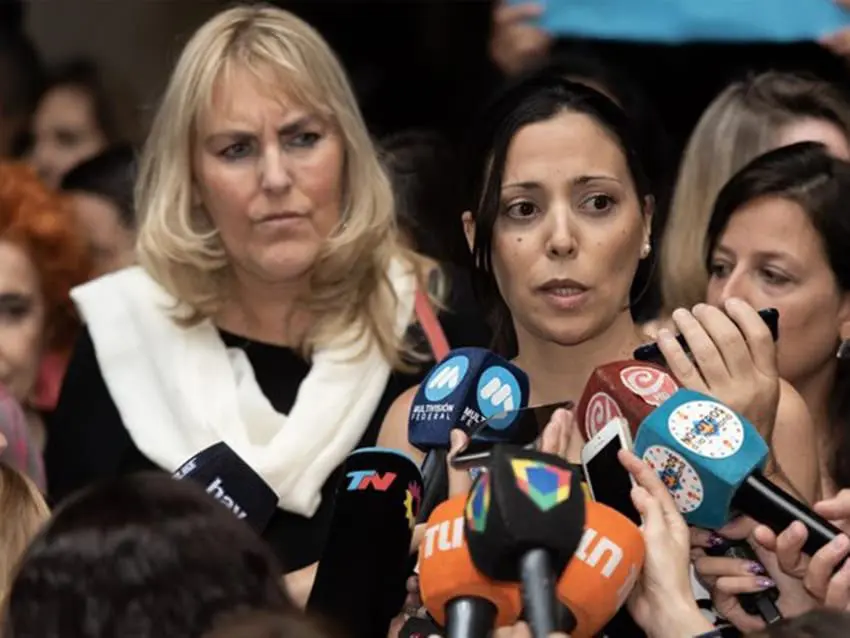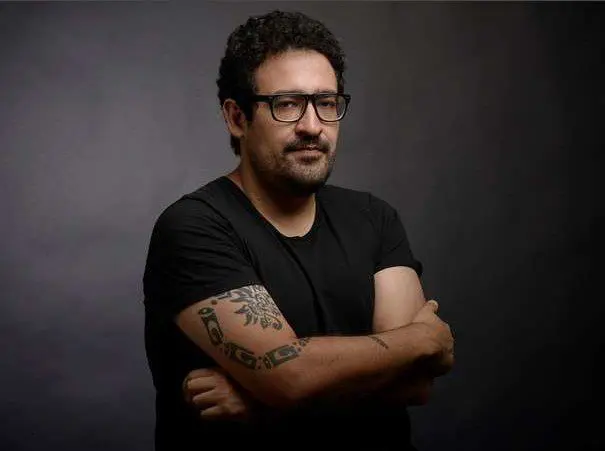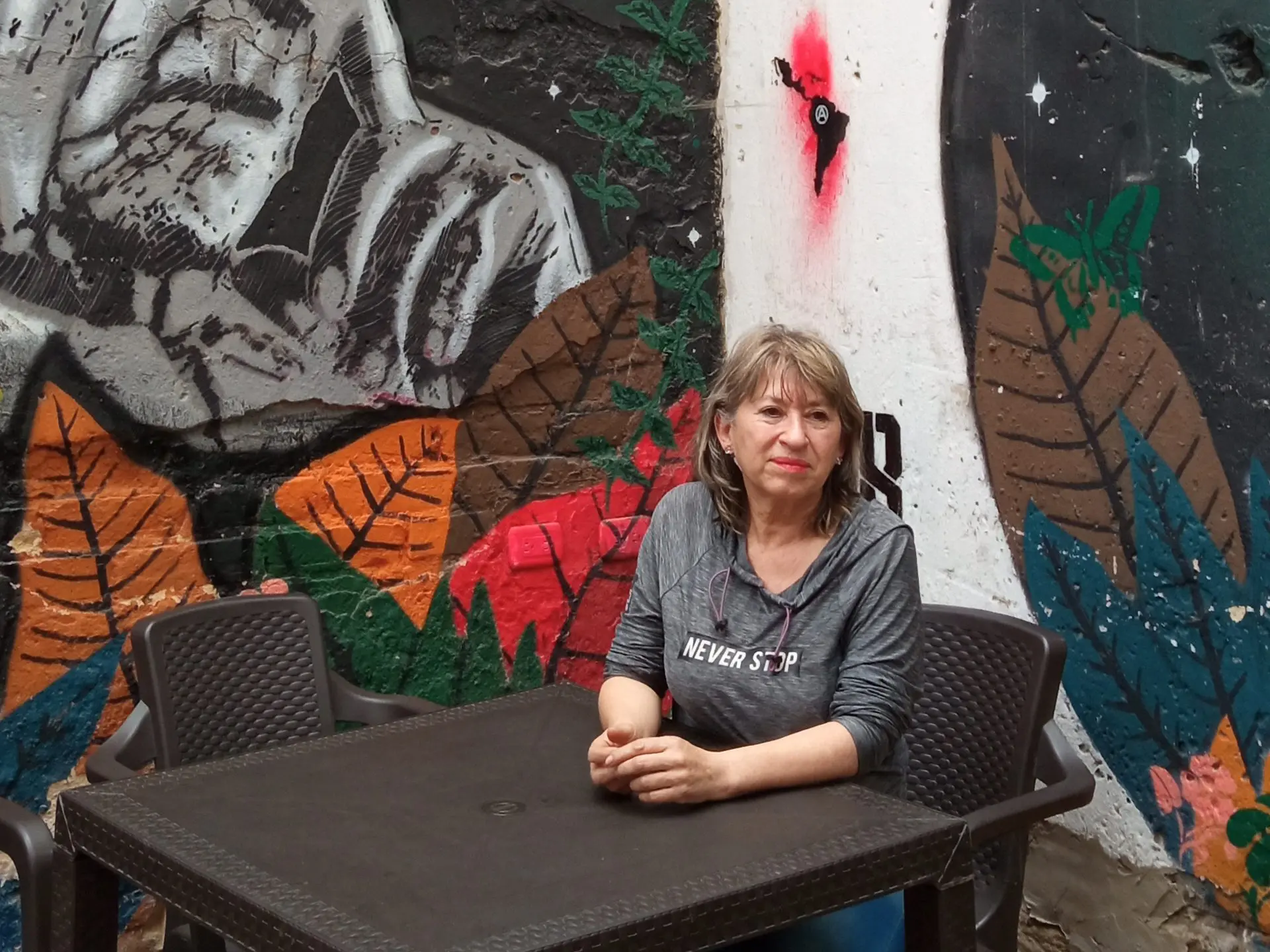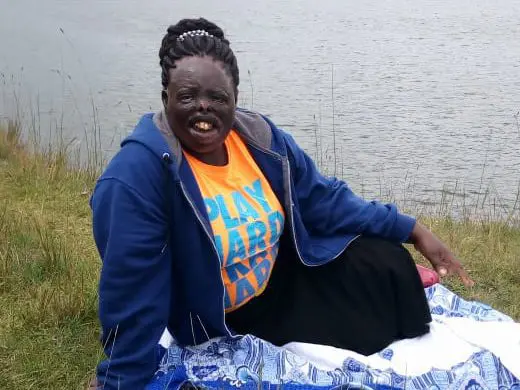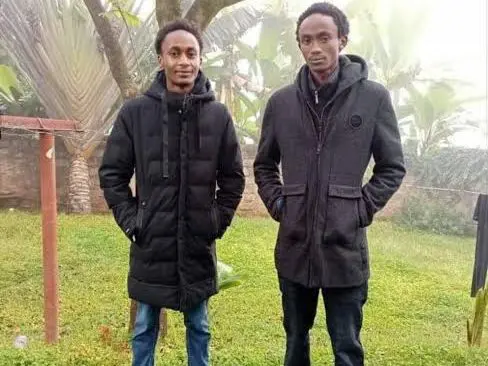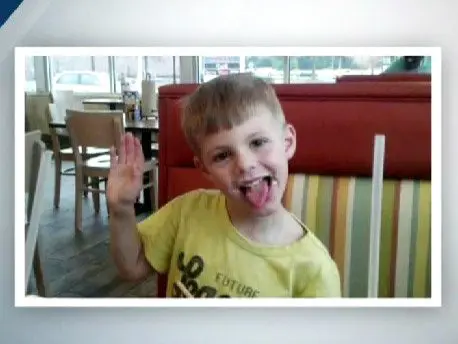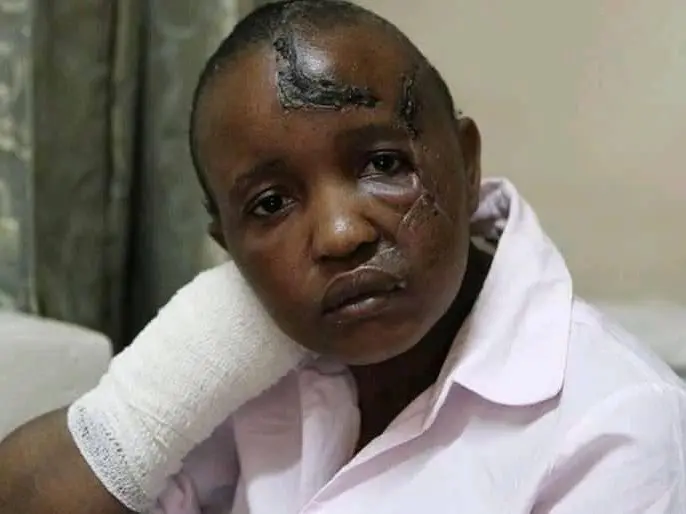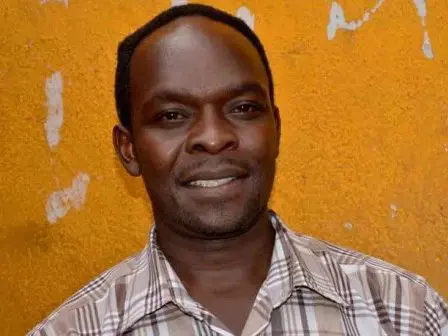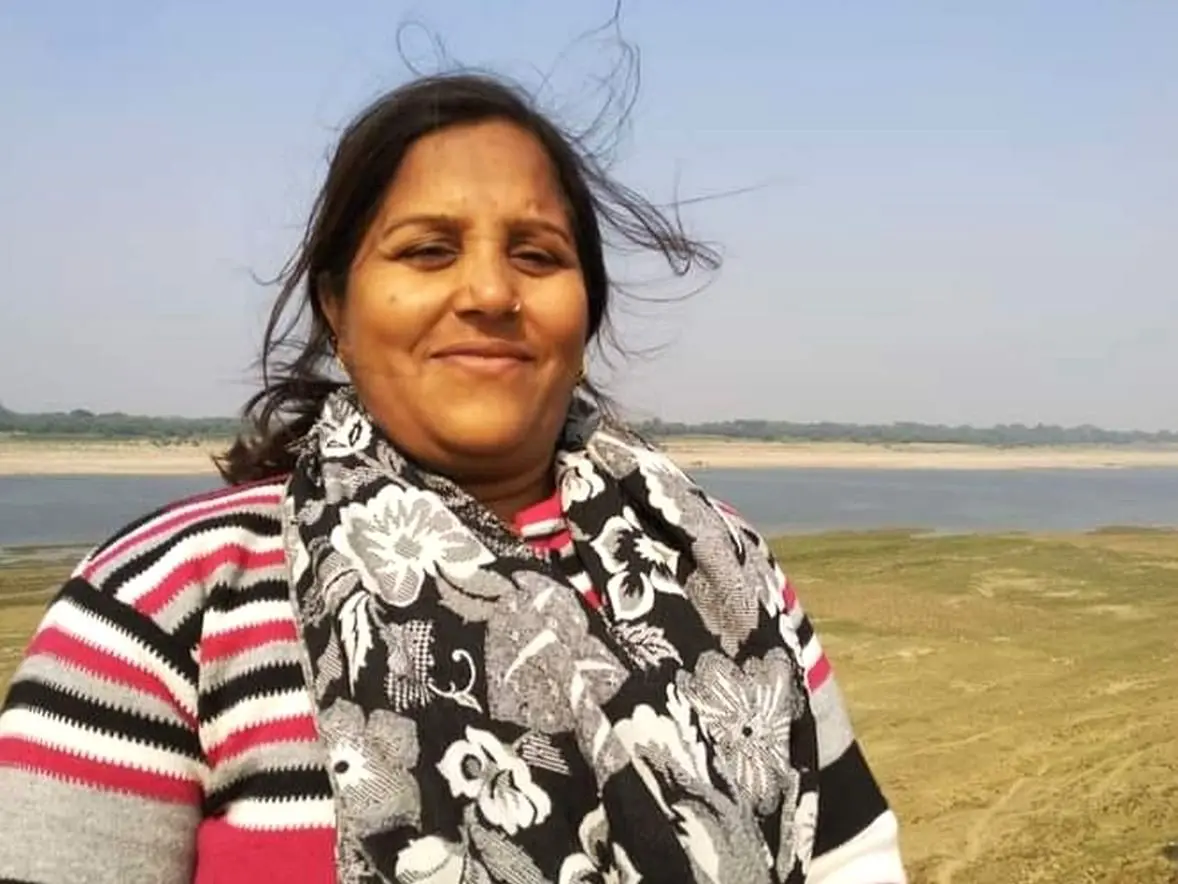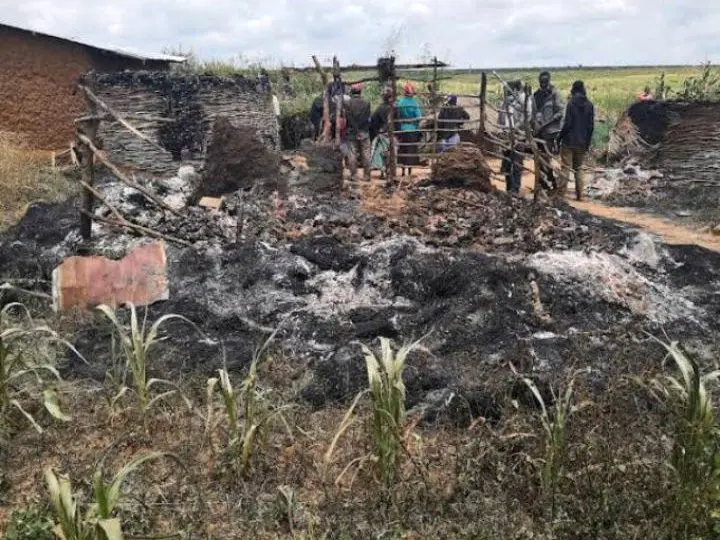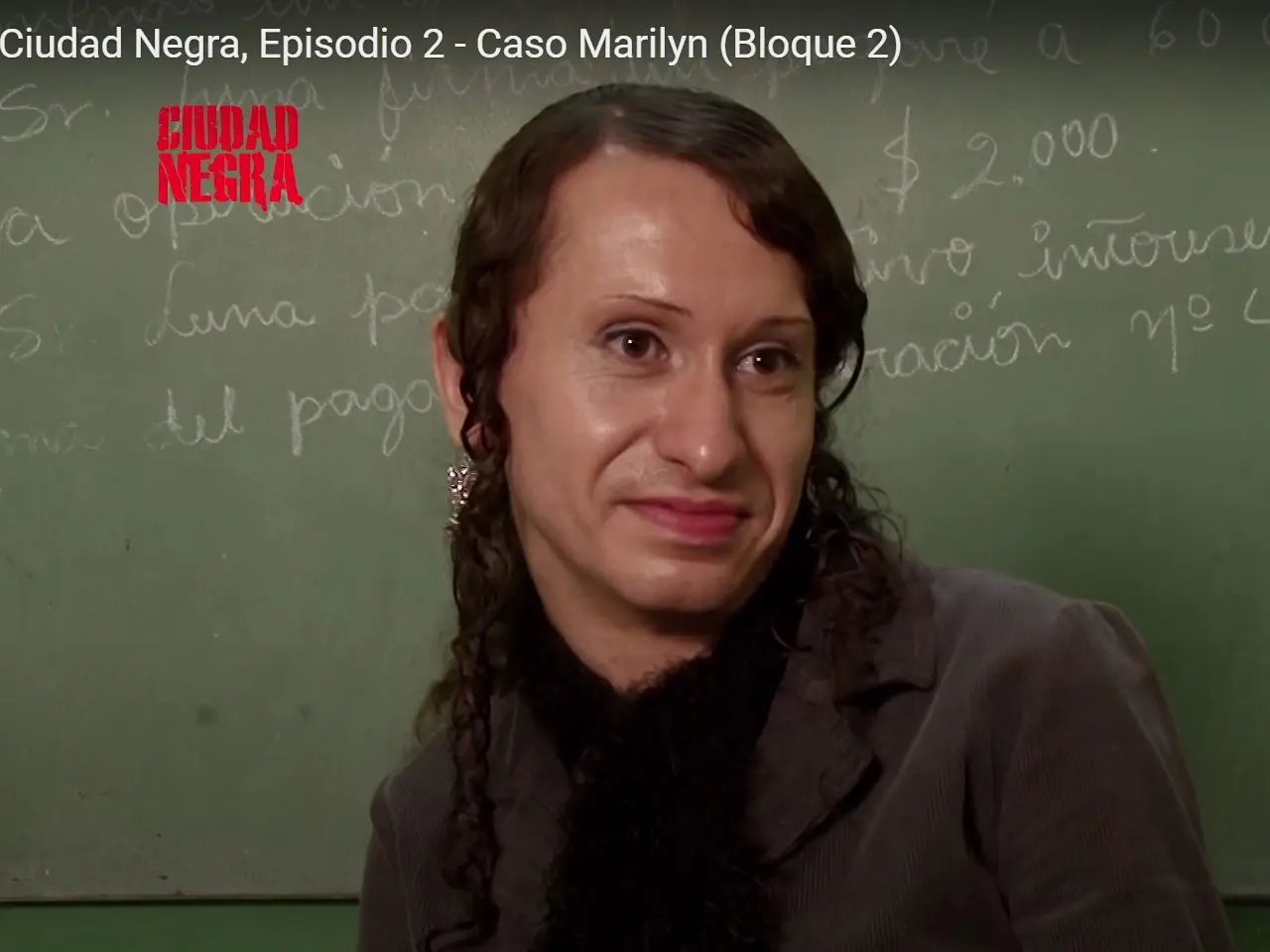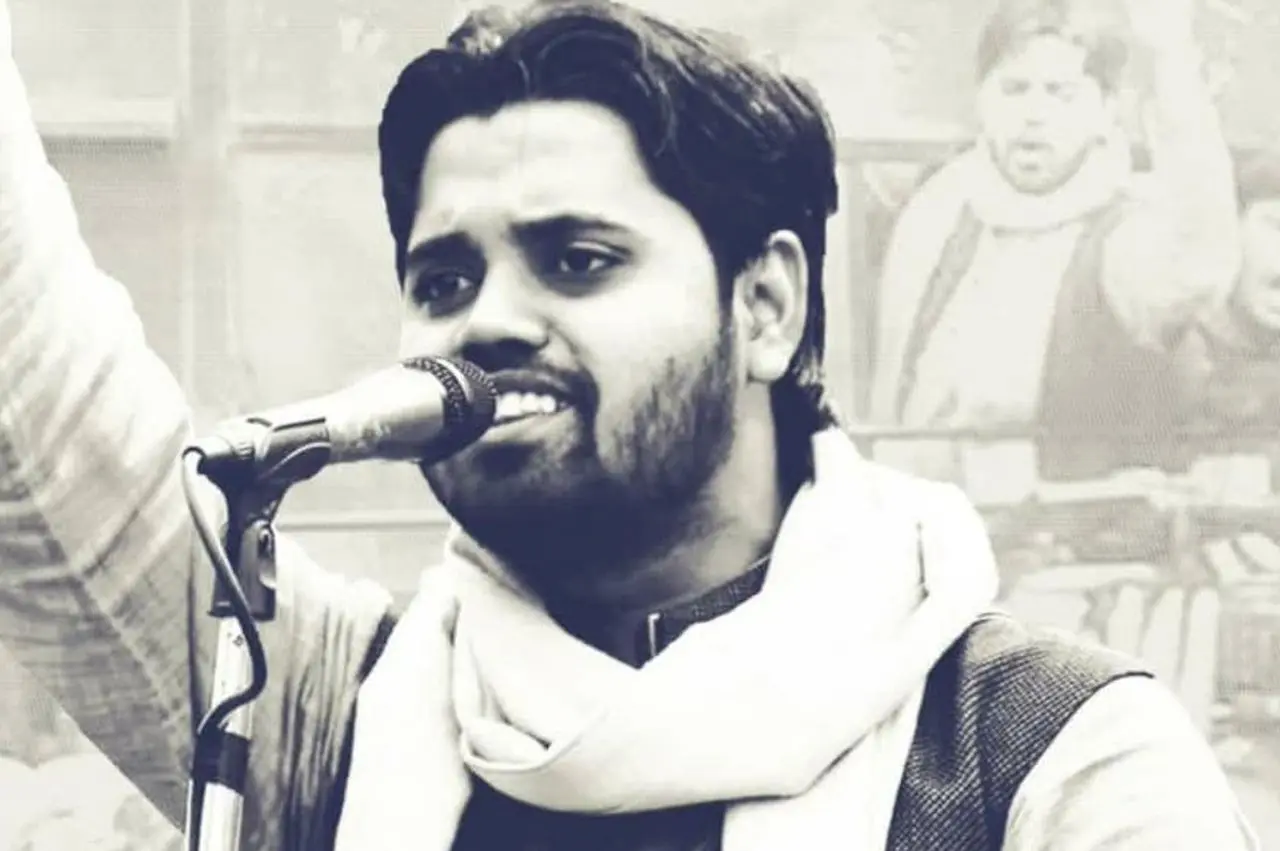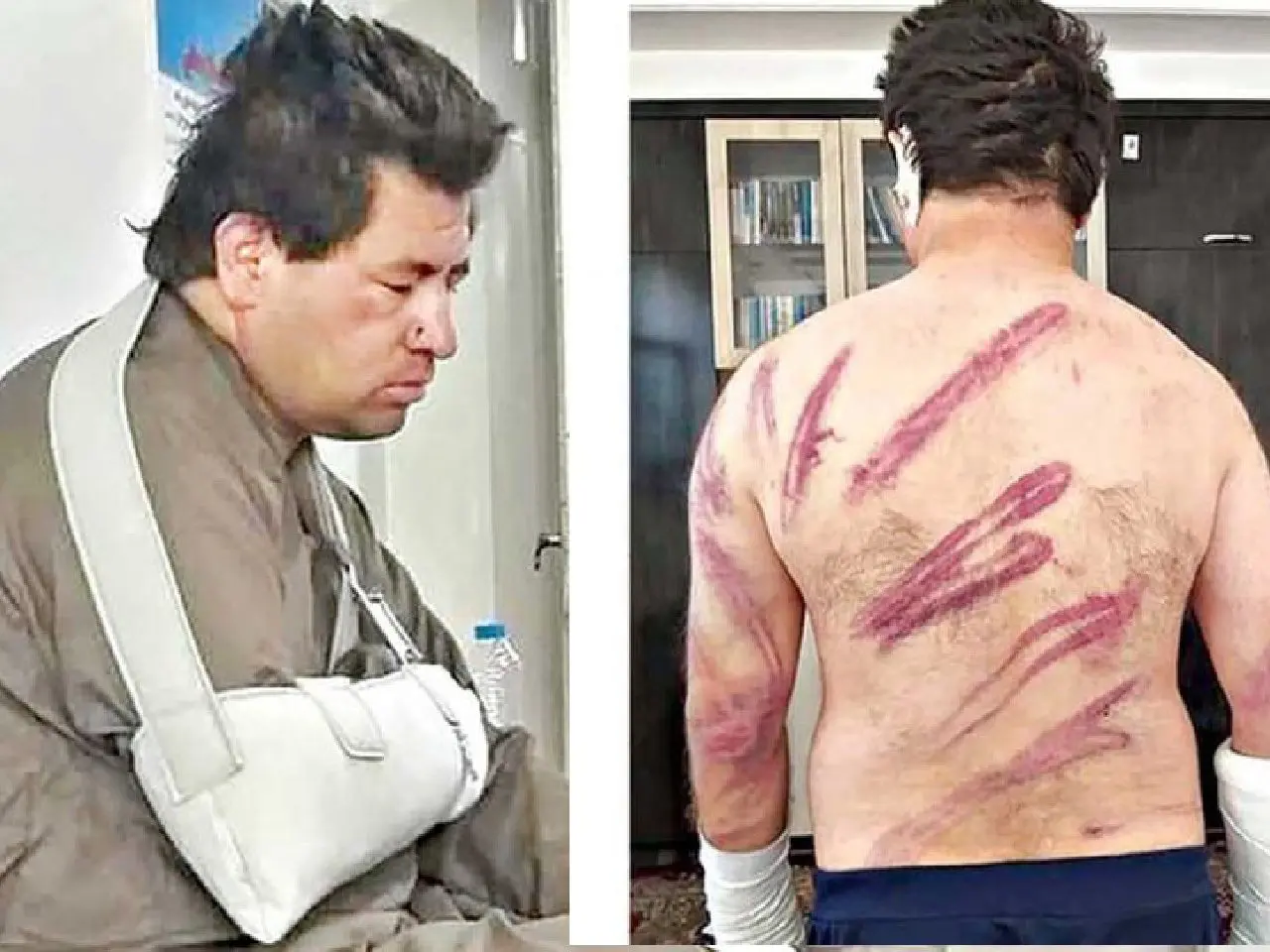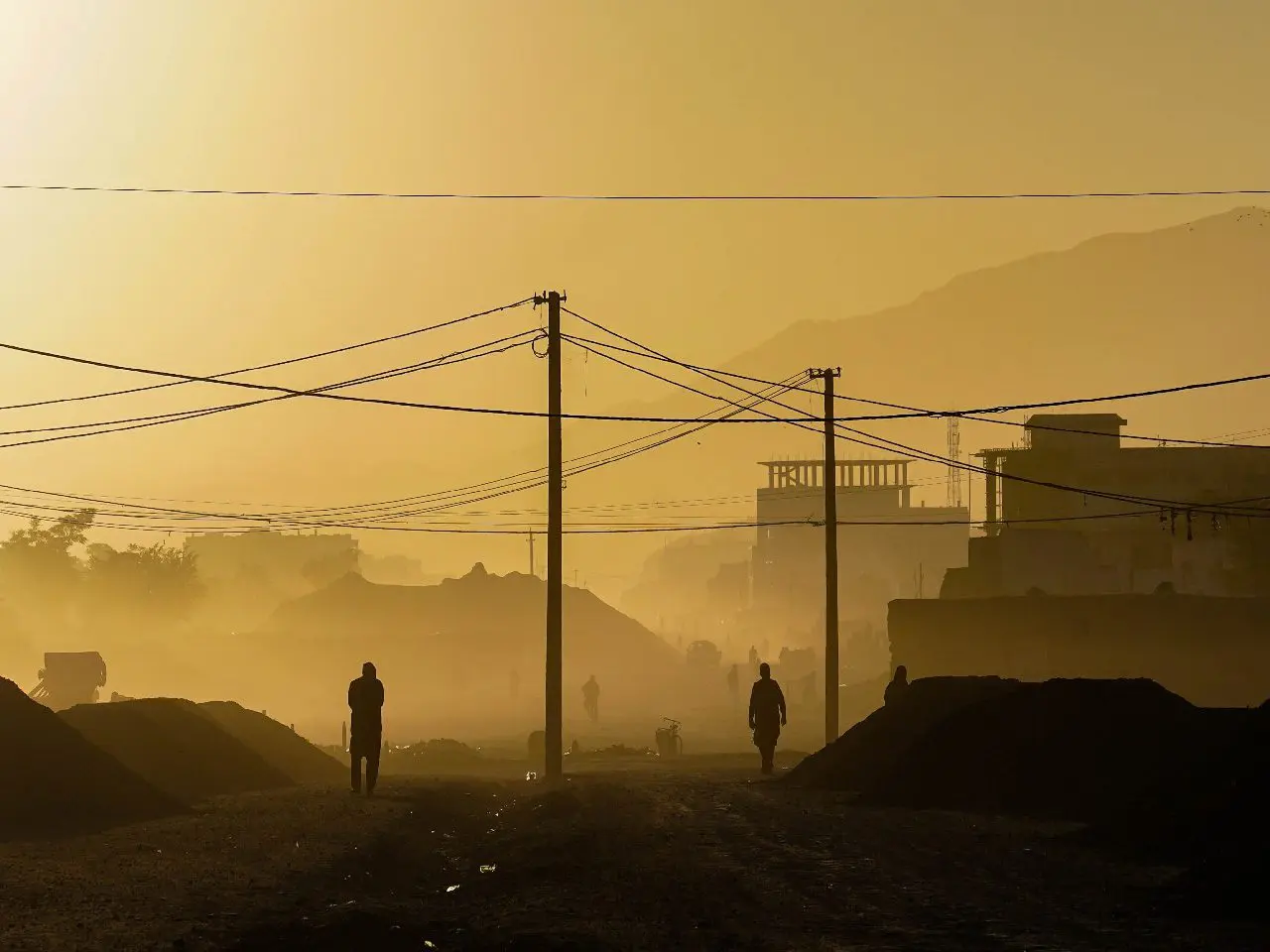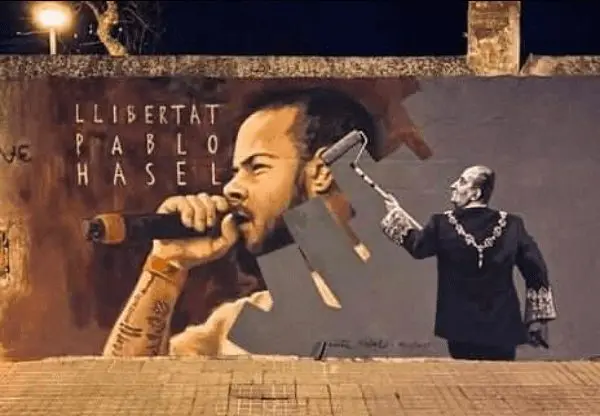Mi historia salió a la luz en la nueva película Argentina, 1985 en Amazon Prime Video
Antes solía tener sueños pero era más con el tema de las amenazas. Afortunadamente mis padres y yo pudimos salir en libertad, pero muchas personas aún continúan desaparecidas. Cuando vino el juicio eran peores las amenazas. Mi hermana se acuerda que al igual que en la pelicula, nos habían dejado una valijita. Nos dejaban notas, nos dejaban cosas, telefono pinchado todo el tiempo, algunas cosas me acuerdo y otras son relatos que me han contado mis hermanos. Es como un terror intravenoso el que me recorria en los sueños. Recuerdo que mi mamá siempre decía: “es mejor estar visible que invisible.
- 2 años ago
enero 6, 2023
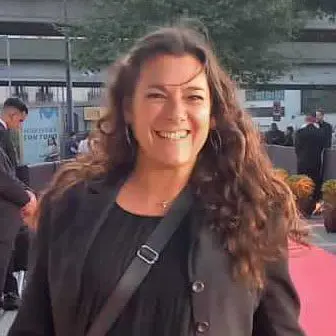
BUENOS AIRES, Argentina — In the new film Argentina, 1985, a scene in the courtroom opens with my mother’s testimony. Watching the premier moved me to tears and brought back painful memories. I was born in captivity, and nobody knew where we were.
My mother Adriana Calvo disappeared with me in her belly. Kidnapped by the Argentine military dictatorship on February 4, 1977, she was six months pregnant. Three months later, on the way to the El Pozo de Banfield detention center, she gave birth to me in the back of a car.
Read more stories from around the globe about people kidnapped.
In the back seat of that Ford Falcon, they had tied my mother’s hands and blindfolded her. After she pushed me out, they left me hanging from the umbilical cord and would not allow my mother to hold me in her arms.
Argentina, 1985 tells the story of the trial of the military juntas who facilitated and organized the kidnapping, torture, rape, and disappearance of more than 30,000 people. My family’s testimony played a key role in that trial. With the film’s premier, I felt moments of anguish as memories rose to the surface.
Terrorized, young girl’s fears infiltrate her dreams
Before the release of the movie Argentina, 1985, I traveled to the Banfield detention center where my mother spent 15 days. The reality of my parents’ kidnapping story weighed heavily on me.
This was the place where they took my mother after she delivered me in a car, kept her blindfolded, and left me lying on the floor crying. This was the place they forced her to clean everything that was soiled during my birth, before they would put her on stretcher and give me to her.
I may have been an infant, but throughout the years, I have suffered from dreams where my family faces threats. I want them to go away. Sadly, those dreams became reality when the trial of the military leaders began.
Amongst the threats we received through the trial, they left notes and an ominous suitcase. They bugged our phones. It felt like an intravenous terror that ran through me and into my dreams. My mother often reminded us, «It is better to be visible than invisible.» She spoke out and appeared on television as a form of safety and protection. It would have been scandalous if something happened to us.
The physical and emotional pain of trauma carries into adulthood
After I turned 20 years old, I went to see an osteopath. She asked, without knowing my story, if my birth had been traumatic. Feeling surprised, I asked her why. From simple observation, she could see a large bend in my spine. The doctor explained that deformities of the spine can occur when a pregnant or birthing mother experiences extreme fear. I felt dismayed. After a few moments of silence, I told her my story.
We share our story with many people throughout Argentina. Our family’s memories remain wrought with fear, torture, terror, and injustice. Yet, unlike many who never returned, my mother came back with a child. After fifteen days at the detention center where they left my infant body lying on the floor, they released my mother and me. We left in terrible conditions – malnourished, dirty, and infested by lice.
They dropped us off at a corner near my maternal grandparents’ house. My father Miguel Laborde had also been released and reunited with us. He and my mother decided then and there to retain as much information as possible and give testimony in due time.
In fact, my mother never stopped fighting for justice – for her family and for those who did not make it. I remember being 11 years old and protesting on the streets while police chased us and fired tear gas. On more than one occasion, I ran frantically to a nearby bar and sat waiting for my mother to show up.
Living a lifetime of pain and nightmares
Besides my house and school, the Association of Former Disappeared Detainees became my second home. I spent most of my time there, hearing the constant sound of the typewriter documenting people’s heartbreaking testimonies. When I grew up, I felt the need to leave Argentina. I was exhausted from seeing so much injustice.
At the age of 20, I went with my theater group to tour several other countries – traveling to Mexico, Ecuador, and Uruguay before settling in Cuba for five years. I studied Art History there and returned to Argentina in 2006 to give birth to my first baby. In that moment, it reconnected me with my own mother and the experiences she endured.
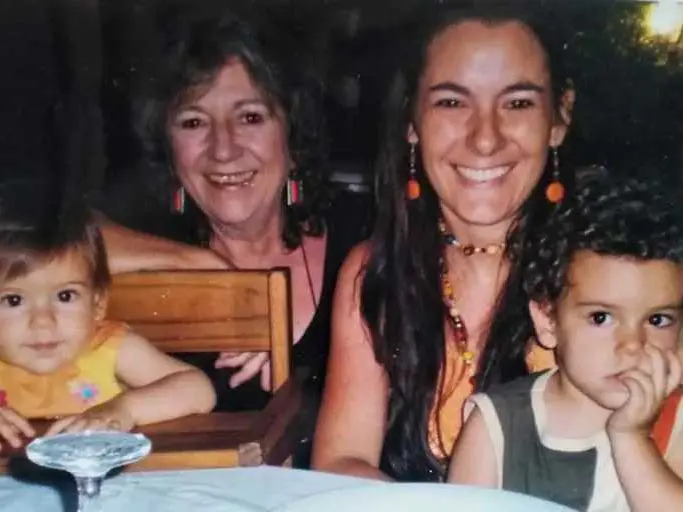
I lived my whole life with physical pain, which I got used to. The hearing impairment in one of my ears and a malformation of my mouth come from the torture my mother endured in the last months of pregnancy. My spine has never been straight.
In addition to the physical affects, I face mental and emotional consequences. I struggled throughout my life with nightmares of people following me. In my dreams, I hear the pounding of their shoes as they walk faster and faster. The steps become louder but when I turned around, no one is there. The horror of feeling like someone is standing at the back of my neck haunts me.
The trial of juntas felt like a farce to victims like my family
The film Argentina, 1985 captures my family’s story as it happened except for the part where we left the country. The insertion of this part of the story helped to tell the tale of the exiles who fled Argentina due to military oppression. When the film premiered, I felt quite distrustful. «Let’s see what they are going to say about me and my family,'» I thought. I wondered how they used our story and what angle they took.
I tried to remain calm. When my sister and I spoke to the director Santiago Mitre he reassured us. «Are you going to use the part about my birth and the exact words of my mother’s testimony,» I asked. When he said yes, relief came over me. A scene in the movie features my mother. As the tears fell down my face watching it, I knew I would never fully have closure. This story not only represents my story, but the story of an entire nation. Sharing the message in this way helps me to cope.

While the trial handed down sentences to five of the accused, the inadequate punishments and the acquittals of four defendants made all of us at the time feel like the trial was a farce. How could individuals complicit in genocide go unpunished? Nevertheless, when prosecutor Strassera pronounced «never again» at the end, it became a banner of our struggle.
The Association of Former Disappeared Detainees, in partnership with witnesses, produced a document identifying close to 800 people responsible for these crimes. The police, their air force personnel, and the businessmen involved never underwent trial. The result remains insufficient. I cannot say what hurts more – my physical body or the lack of justice we experienced.
The fight goes on for decades
My childhood, like many others, became a life of external silence. While inside the home we spoke of these experiences, outside the house we had to be continuously cautious. The victims gathered in groups to share the names of those who tortured them. We never stopped seeking justice or knocking on the doors of the court.
Over 20 years after the trial of the juntos, as depicted in Argentina, 1985, police officer Miguel Etchecolatz received a life sentence for his participation in the dirty war. Tragically, one of the key witnesses Jorge Julio López, went missing on September 18 that same year. I often wondered why my own parents did not leave Argentina. They told me, «The ones who should leave are the military, not the citizens who suffered in their presence.»
Throughout my life, the violation of human rights became normalized – a common practice. We feel each disappointment. After the convictions, the very same six judges allowed many of the perpetrators to file petitions claiming the proceedings and convictions violated their constitutional rights. Men like Dr. Jorge Antonio Bergés, who delivered babies in clandestine detention centers, continued to practice for twelve years. It took another ten years to bring him to justice, and yet, he only got house arrest.
Impunity brings impunity. In this world, people who protest get demonized. In many areas of Argentina, security forces continue to repress people. But still, we take to the streets. We fight for a better world and for justice.
